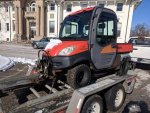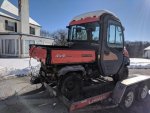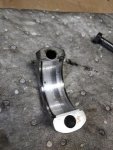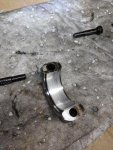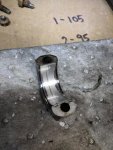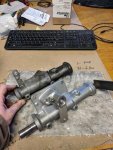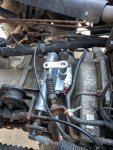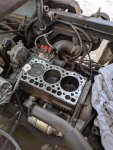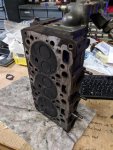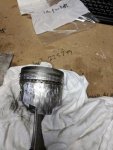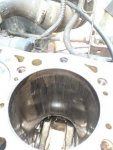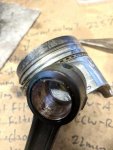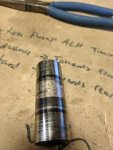Terrawombat
Member
I found a pretty well used 2010 Kubota RTV1100 on a government auction website and decided to place a bid. I didn't meet the reserve price and the auction ended with me as the high bidder. I assumed that the auction was a lost cause and moved on with my life, but then a week later I received an e-mail asking if I would like to purchase for my bid price. I accepted. Final sale price was a hair over $2500 after taxes, fees and all that good stuff.
The machine has definitely seen better days. I was told that it needed a new engine by the selling party, but they had received the prognosis from their local Tractor Supply store. Considering I have never visited a Tractor Supply that had a service department I was highly skeptical that a new engine was actually necessary.
Once I got it home and charged up the stone dead battery, the engine turned over fine and fired right up, but it did have a very audible knock that got louder as the engine ran longer. I feared a spun rod bearing so I dropped the oil pan and inspected all three bearings. Cylinders 1 and 2 didn't look great, but they didn't look bad and certainly were not in a condition that would cause rod knock. Cylinder 3 looked excellent so I decided to put everything back together, change the oil and filter and focus my attention elsewhere.
After firing up the engine again, I popped the valve cover to see if there was anything obvious underneath. I found nothing. Everything looked to be operating as normal and while I didn't check the valve lash with a feeler gauge, nothing seemed excessively out of adjustment that would cause the knock I'm experiencing.
Next test was while the engine was running, I cracked open each line to the fuel injectors to see if there was any change in operation or tone. Opening the lines to injectors #1 and #2 caused the engine to bog down and shot diesel fuel all over the place, but the knock remained. Opening the injector line to #3 caused fuel to shoot everywhere and the engine to bog down, but the knock decreased. The more I opened the fuel line, the more the engine bogged down, the more fuel hit me in the face and the more the knock vanished.
Now I'm faced with figuring out what this means. I'll keep you all posted.
The machine has definitely seen better days. I was told that it needed a new engine by the selling party, but they had received the prognosis from their local Tractor Supply store. Considering I have never visited a Tractor Supply that had a service department I was highly skeptical that a new engine was actually necessary.
Once I got it home and charged up the stone dead battery, the engine turned over fine and fired right up, but it did have a very audible knock that got louder as the engine ran longer. I feared a spun rod bearing so I dropped the oil pan and inspected all three bearings. Cylinders 1 and 2 didn't look great, but they didn't look bad and certainly were not in a condition that would cause rod knock. Cylinder 3 looked excellent so I decided to put everything back together, change the oil and filter and focus my attention elsewhere.
After firing up the engine again, I popped the valve cover to see if there was anything obvious underneath. I found nothing. Everything looked to be operating as normal and while I didn't check the valve lash with a feeler gauge, nothing seemed excessively out of adjustment that would cause the knock I'm experiencing.
Next test was while the engine was running, I cracked open each line to the fuel injectors to see if there was any change in operation or tone. Opening the lines to injectors #1 and #2 caused the engine to bog down and shot diesel fuel all over the place, but the knock remained. Opening the injector line to #3 caused fuel to shoot everywhere and the engine to bog down, but the knock decreased. The more I opened the fuel line, the more the engine bogged down, the more fuel hit me in the face and the more the knock vanished.
Now I'm faced with figuring out what this means. I'll keep you all posted.

